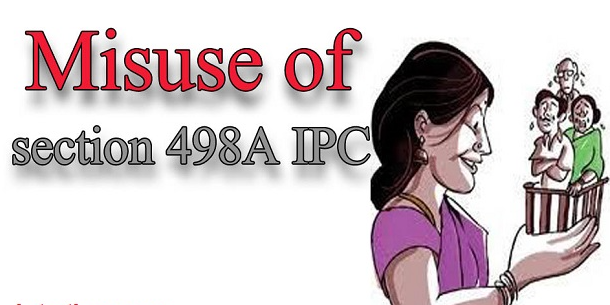Misuse of Section 498A of IPC and the Domestic Violence Act 2005 (GS Paper 2, Governance)

Why This Matters
- Recent observations from the Supreme Court have raised concerns about the misuse of Section 498A of the Indian Penal Code (now included in the Bharatiya Nyaya Sanhita, 2023) and the Domestic Violence Act, 2005.
- These laws, originally designed to protect women from cruelty and domestic violence, have been criticized for being exploited in various contexts, leading to unjust repercussions for many.
Understanding Section 498A of the IPC
What It Covers
- Section 498A addresses the issue of cruelty against married women by their husbands or in-laws, a provision introduced in 1983 to combat the growing instances of dowry-related violence.
- Under the Bharatiya Nyaya Sanhita, 2023, this section maintains the same focus, criminalizing acts that cause grave injury or mental harm.
Penalties
- Violations can lead to a prison term of up to three years and potential fines. The provision allows complaints to be filed not only by the aggrieved woman but also by her relatives or designated public servants.
Characteristics
- Cognizable and Non-Bailable: Offenses under this section allow for immediate arrests without prior investigation, raising concerns about potential misuse.
- Time Limit: Complaints must be filed within three years of the alleged incident.
Overview of the Domestic Violence Act, 2005
Purpose
- The Domestic Violence Act aims to provide a robust framework for protecting women against various forms of abuse, including physical, emotional, and economic violence within domestic settings.
Key Features
- Broad Definition of Domestic Violence: This includes any act that harms or threatens the well-being of a woman.
- Comprehensive Coverage: The Act protects women in diverse relationships, including wives, mothers, sisters, and live-in partners.
- Rights and Protections: It guarantees women the right to reside in shared households and access to financial relief, counselling, and legal aid.
Factors Contributing to Domestic Violence
Domestic violence often stems from a mix of societal and individual factors, including:
- Patriarchal Norms: Gender inequality and the normalization of violence in familial relationships.
- Cultural Acceptance: Societal tolerance for domestic violence, especially in private settings.
- Economic Dependence: Financial reliance on male family members limits women's options to seek help.
- Substance Abuse: Intoxication can exacerbate violent behaviors within households.
Misuse of Legal Provisions
Exploitation for Personal Gain
- Both Section 498A and the Domestic Violence Act can be misused for personal vendettas, leading to false allegations.
- This is particularly evident in marital disputes involving property settlements or custody battles.
Coercion Tactics
- Abusers may use the threat of legal action to force financial settlements or alimony from their partners, exploiting the fear associated with the potential for arrest or social stigma.
Immediate Arrests and Social Stigma
- The non-bailable nature of these offenses can result in immediate detentions without thorough investigations, causing significant harm to the accused’s reputation and mental well-being—even if they are ultimately acquitted.
Judicial Observations
- Courts have repeatedly highlighted the need for reforms, advocating for better investigative practices before arrests and the imposition of penalties for false complaints.
Moving Forward
To address these issues, a multifaceted approach is necessary:
- Reforming Legal Frameworks: Clear distinctions between bailable and non-cognizable offenses should be established, and thorough investigations mandated before arrests are made.
- Accountability for False Claims: Legal measures should hold individuals accountable for misleading or frivolous complaints, deterring misuse of the laws designed to protect vulnerable individuals.
- Gender-Just Laws: Legal reforms must recognize domestic violence against all genders, promoting a more equitable approach that protects the rights of every individual, regardless of gender.
- Education and Awareness: Increasing awareness of legal rights and available support mechanisms can empower victims and reduce the incidence of domestic violence.
- Strengthening Support Systems: Governments and NGOs should collaborate to enhance support services, ensuring that victims of domestic violence receive the necessary legal and psychological assistance.
Conclusion
- While laws like Section 498A and the Domestic Violence Act are essential for protecting women, their misuse highlights the need for balanced reforms.
- A legal system that promotes fairness, accountability, and gender equality is crucial for fostering an inclusive and just society.
- By addressing the issues of misuse and ensuring that protective measures are effectively implemented, we can create a safer environment for all individuals, regardless of gender.


